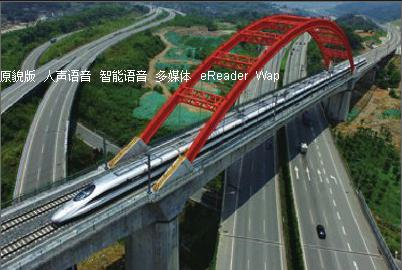Thanks for Not Smoking
2015-06-23



Non-smoking banners are displayed on the iconic Birds Nest National Stadium in Beijing on June 1.
A new smoking ban took effect in the nations capital on that day. The ban, the countrys toughest to date, prohibits smoking in all the citys indoor public places, workplaces and on public transportation. Following the ban, the capitals airport closed three smoking rooms in its three terminals and opened 11 smoking spaces outside.
Wage Growth
China is expected to achieve its average annual minimum wage growth target of 13 percent for the five-year period ending in 2015, experts said on May 28.
Nineteen regions in China increased the minimum wage at an average rate of 14.1 percent in 2014, the Ministry of Human Resources and Social Security revealed on May 28.
The growth pace is faster than the planned annual average growth rate,
but slower than the previous three years, said the ministry in a statement posted on its official website.
In China, where city and provincial governments set minimum wage standards, 27 regions raised the minimum wage by an average rate of 17 percent in 2013, while minimum wage hikes in 25 regions surpassed 20 percent on average in 2011 and 2012.
Last year, Shanghai registered the highest statutory minimum monthly wage of 1,820 yuan ($297) and the highest minimum hourly rate of 17 yuan($2.74), the statement said.
Credit Score Website
A website containing the credit history of a number of Chinese residents and firms was launched on June 1, the latest push in an ongoing effort to establish a credit system in China.
More than 1.13 million pieces of information on factors that affect a business or individuals credit score, such as tax avoidance and failure to follow court rulings, are now publicly available on the website creditchina.gov.cn.
The website is the result of a multidepartmental collaboration, including the State Administration of Taxation, Supreme Peoples Court, National Development and Reform Commission(NDRC), and the China Securities Regulatory Commission.
The website is operated by the State Information Center, a government think tank under the NDRC, Chinas top economic planner.
Bilingual Judges
Northwest Chinas Xinjiang Uygur Autonomous Region is expected to have 1,500 judges who can speak both Mandarin Chinese and Uygur before 2020.
Training bilingual judges is urgently needed, said Dainzhub Ngogbang, deputy head of the State Ethnic Affairs Commission, at a conference in the regional capital of Urumqi on May 28.
Bilingual judges will further ensure that ethnic minorities legal rights are protected, which is of great importance to ethnic unity in the region, said Xu Jiaxin, head of the political department with the Supreme Peoples Court.
Xinjiang is a remote region with more than half of its population being ethnic minorities.
First MERS Case
A man from South Korea has tested positive for the deadly Middle East Respiratory Syndrome (MERS) virus in south Chinas Guangdong Province, health authorities confirmed on May 29.
The man, 44, flew from South Korea to Hong Kong on May 26 and entered Huizhou via Shenzhen of Guangdong. On May 30, a total of 47 people were confirmed to have close contacts with this man.
The patient is the son of the third confirmed MERS case in South Korea and the brother of the countrys fourth confirmed case.
MERS is a respiratory illness caused by a new type of corona virus. The first case was identified in Saudi Arabia in 2012. There is no vaccine or treatment for the disease yet, which has a fatality rate reaching 40.7 percent.
Library Goal
The Ministry of Education has set the goal to install state-standard libraries in“most” elementary and middle schools by the end of 2020.
In an ongoing education drive focusing on the underdeveloped central and western regions, schools with adequate resources were urged to establish their own libraries, source more materials for existing ones and upgrade those deemed “unqualified,” the ministry said in a statement on June 1.
While offering specific stipulations on the functions, size, facilities, storage methods and opening hours of standard libraries, the ministry noted that rural schools should at least supply a fixed list of books for students, if not an official library room.
The library effort is a joint drive by the ministries of education and culture, and the State Administration of Press, Publication, Radio, Film and Television.
The statement called on local education authorities and enterprises to offer more financial support for rural schools to build libraries.
Environmental Prize
The Central Government on June 3 announced it would set up Chinas first state-level environmental protection prize with aims to enhance public awareness.
The triennial China Ecological Civilization Awards honor groups and individuals that have made a significant contribution to environmental protection through direct efforts, theoretic research, education and publicity, the Ministry of Environmental Protection said in a statement.
This year, 20 groups and 30 individuals will be honored. Most candidates work at the forefront of environmental protection, including scientists, journalists, farmers, civil servants and soldiers.
Boat Racing Festival
Villagers put the new dragon boat into the water to practice for the approaching Dragon Boat Festival in Jieyang of south Chinas Guangdong Province, which will fall on June 20 this year.
Eco-Racing
The Danish Ambassador to China Friis Arne Peterson (fourth right) poses for a photo with event participants in the embassy compound, as the Royal Danish Embassy in Beijing organized a Climate Race 2015 event together with the Chinese Cycling Association on May 30 to raise the publics awareness on modern urban lifestyle, green transportation and climate change.
This was the fifth time that the Danish Embassy has organized the event.
Against Desertification
The State Forestry Administration(SFA) of China rolled out guidelines on protecting the countrys desertified land on June 2.
The guideline advised more than 1.2 million square km of desertified land in China be closed off as a protection zone so as to slow the movement of sand and improve the environment.
The guidelines, effective from July to the end of 2020, demand that activities including cutting down trees, cultivating land, animal grazing, resource exploration, mining, and misuse of water be prohibited in the protected zones. Construction of railways and highways are not allowed. No immigrants should settle in the areas.
According to statistics from the SFA, China had a desert area of around 2.62 million square km, which accounts for 27 percent of its total land area.
China-ROK FTA
The signing of a free trade agreement(FTA) between China and the Republic of Korea (ROK) in Seoul on June 1 has again boosted bilateral ties, which are at a historical high.
Under the accord, the ROK will eliminate tariffs on 92 percent of all products from China within 20 years, while China will abolish tariffs on 91 percent of all ROK goods.
The pact is the result of more than a dozen rounds of negotiations between the two countries since May 2012 and high-level exchanges between the two nations.
ROK President Park Geun-hye paid a visit to China in June 2013 while Chinese President Xi Jinping visited the ROK in last July.
In addition to providing a further boost to the government relations, the FTA brings an institutional platform for the two Asian neighbors to strengthen their bilateral strategic cooperative partnership.
The pact, which is the largest bilateral free trade deal for China in terms of trade volume, marks the biggest leap forward in bilateral trade since the two began diplomatic relations in 1992.
E-Commerce in Tibet
Tibet has launched an e-commerce project to help the regions companies expand, local authorities said on May 29.
The 600-million-yuan ($98 million) project includes an online shopping website, a commodity trading platform and an asset exchange platform, said Zhou Hu, Deputy Director of the Department of Industry and Information Technology in Tibet.
The platforms will also offer data to the government for economic regulation.
Tibets first third-party payment platform will also be established under the project.
The online platforms will be built under the same standards as other leading e-commerce websites in China, said Jia Jingpeng, General Manager of Tibet property exchange.
PMI Keeps Expanding
Chinas manufacturing business activity continued improving in May, with an important index remaining in expansion territory, official data showed on June 1.
The manufacturing purchasing managers index (PMI), a key measure of factory activity in China, posted at 50.2 in May, up from 50.1 in April, according to data compiled by the National Bureau of Statistics (NBS) and the China Federation of Logistics and Purchasing.
A reading above 50 indicates expansion, while a reading below 50 represents contraction.
Zhao Qinghe, a senior analyst with the NBS, said Chinas manufacturing PMI figures have been above the expansion/contraction threshold for the last three months thanks to a string of easing measures by the Central Government.
The PMI for the non-manufacturing sector fell to 53.2 in May, down from 53.4 for April.
Zhao said Mays reading indicated Chinas service sector activity continued to expand, but at a slower pace.
Nuclear SOEs IPO
China National Nuclear Power Co. Ltd.(CNNP) started taking subscriptions from investors on June 2, aiming to raise 13.19 billion yuan ($2.15 billion).
Intending to issue 3.891 billion shares at 3.39 yuan ($0.55) a share, CNNPs initial public offering (IPO) could be the biggest in the A share market since Chinas Power Construction Corp. in September 2011.
CNNPs IPO price was 22.29 times the companys 2014 earnings, lower than an average earnings ratio of 22.32 for the industry, according to CNNP statements posted on the Shanghai Stock Exchange website on June 2.
Altogether, 1.17 billion CNNP shares, or 30 percent of the total, will be transacted online, while the rest will be traded offline, said the statements.
In the first quarter of this year, the companys operating revenue reached 6.36 billion yuan ($1.03 billion), surging 45.06 percent compared with the same period last year.
New Railway Route
A bullet train runs across a bridge in Fuzhou on June 1.
A high-speed railway route between Fuzhou, capital of southeast Chinas Fujian Province, and Hefei, capital of east Chinas Anhui Province, which entered into trial operation on June 1, will shorten the travel time between the cities from 8.5 hours to 4 hours.
Talking Watches
Li Zhifei, founder of Chumenwenwen, a Siri-like application, introduces the functions of Ticwatch at a press conference on June 3.
Ticwatch, a type of Chinese intelligent voice interaction watch, will hit the market on June 18.
Tidal Power Plant
A state-owned Chinese company has been chosen to build a six-mile wall for the worlds first tidal lagoon power plant in Britains Swansea Bay, project developer Swansea Bay Tidal Lagoon announced on June 3. China Harbor Engineering Co. Ltd. (CHEC) is the company that won the 300-million-pound ($460 million) contract.
CHEC will spend half of the contracts value on the British workforce, partners and supply chain, said the developer.
According to local media, the 1-billion-pound Swansea Bay tidal project will deliver power to the national grid, potentially enough for 120,000 homes.
Besides, CHEC has established a British subsidiary company and has set out its vision to pursue a Britain infrastructure investment program over the next decade.
Online Stores Regulated
China will launch a five-month campaign to regulate the online market and protect the legitimate rights and interests of online consumers and operators.
The campaign, effective from July to November, will target notorious fake and inferior commodities that have been widely complained about by consumers and dealers, as well as dishonest shopping websites, the State Administration for Industry and Commerce announced on June 3.
Electronic products, car accessories, clothing and shoes, goods for children and the elderly, agricultural materials and other important commodities will be inspected.
Exercising strict supervision, the market regulator will ensure that sales promotion rules during festivals and holidays are transparent to customers, online merchants have appropriate plans in place for consumer complaints and market rules like return policies are well-implemented.
A real-name registration system will be established for online stores in an effort to combat illegal trade activities and fake shopping sites.
Certificate of Deposit
The central bank issued a provisional regulation on June 2 that allows financial institutions to issue certificates of deposit, giving banks more freedom over pricing interest rates.
A certificate of deposit is a time deposit that entitles the holder to receive interest at a higher rate than ordinary deposits. It is thus more appealing to savers.
From June 2, individual investors can buy certificates of deposit worth at least 300,000 yuan ($48,860). Institutional investors can buy certificates worth at least 10 million yuan ($1.6 million).
Interest on the certificates will be mainly determined by the market. Banks and investors can set a fixed or a floating rate, using the Shanghai Interbank Offered Rate (Shibor) as a benchmark.
Shibor, which measures costs of interbank borrowing, stood at 3.189 percent for six-month loans and 3.4175 percent for one-year loans on June 2.
